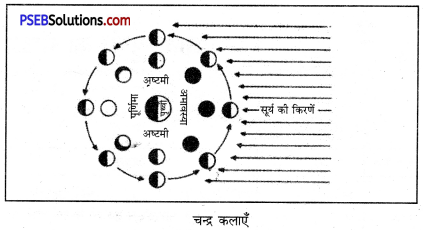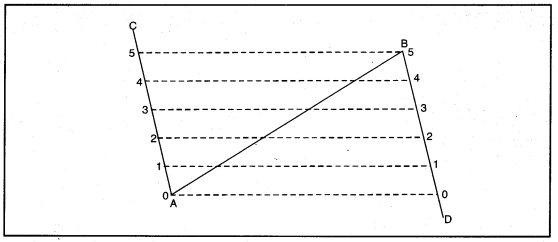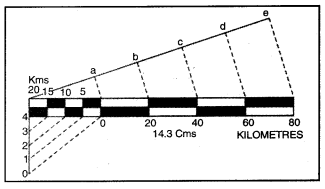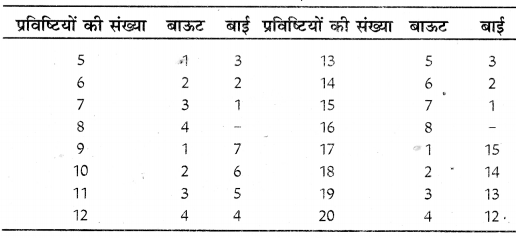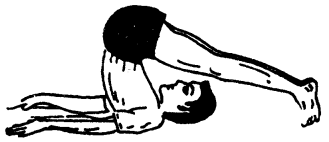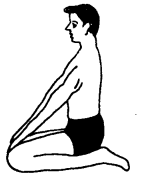Punjab State Board PSEB 12th Class History Book Solutions Chapter 19 महाराजा रणजीत सिंह के अफ़गानिस्तान के साथ संबंध तथा उसकी उत्तर-पश्चिमी सीमा नीति Textbook Exercise Questions and Answers.
PSEB Solutions for Class 12 History Chapter 19 महाराजा रणजीत सिंह के अफ़गानिस्तान के साथ संबंध तथा उसकी उत्तर-पश्चिमी सीमा नीति
निबंधात्मक प्रश्न (Essay Type Questions)
रणजीत सिंह के अफ़गानिस्तान के साथ संबंध (Ranjit Singh’s Relations with Afghanistan)
प्रश्न 1.
महाराजा रणजीत सिंह के अफ़गानों के साथ संबंधों का संक्षिप्त वर्णन करें। (Briefly describe Maharaja Ranjit Singh’s relations with the Afghans.)
अथवा
महाराजा रणजीत सिंह के अफ़गानिस्तान के साथ संबंधों के मुख्य चरणों का संक्षिप्त विवरण दें।
(Give a brief account of the main stages of relations of Maharaja Ranjit Singh with Afghanistan.)
उत्तर-
महाराजा रणजीत सिंह के अफ़गानों के साथ संबंधों को चार चरणों में बाँटा जा सकता है—
(क) सिख-अफ़गान संबंधों का प्रथम चरण 1797-1812 ई०
(ख) सिख-अफ़गान संबंधों का द्वितीय चरण 1813-1834 ई०
(ग) सिख-अफ़गान संबंधों का तृतीय चरण 1834-1837 ई० (घ) सिख-अफ़गान संबंधों का चतुर्थ चरण 1838-1839 ई० ।
(क) सिख-अफ़गान संबंधों का प्रथम चरण 1797-1812 ई० (First Stage of Sikh-Afghan Relations 1797-1812 A.D)
1. रणजीत सिंह तथा शाह ज़मान (Ranjit Singh and Shah Zaman)-जब 1797 ई० में रणजीत सिंह ने शुकरचकिया मिसल की बागडोर संभाली उस समय अफ़गानिस्तान का बादशाह शाह ज़मान था। वह पंजाब पर अपना पैतृक स्वामित्व समझता था। इसका कारण यह था कि इस पर उसके दादा अहमद शाह अब्दाली ने 1752 ई० में अधिकार किया था। अतः शाह ज़मान ने 27 नवंबर, 1798 ई० को लाहौर पर अधिकार कर लिया। भंगी सरदार शाह ज़मान का सामना किए बिना शहर छोड़कर भाग गए। उसी समय अफ़गानिस्तान में हुए विद्रोह के कारण शाह ज़मान को काबुल जाना पड़ा। इस पर भंगी सरदारों ने जनवरी, 1799 ई० को लाहौर पर पुनः अधिकार कर लिया। रणजीत सिंह ने भंगी सरदारों को पराजित करके 7 जुलाई , 1799 ई० को लाहौर पर अपना अधिकार कर लिया। इसके पश्चात् रणजीत सिंह ने शाह ज़मान की 12 अथवा 15 तोपें जो जेहलम नदी में गिर पड़ी थीं, निकलवाकर काबुल भेजी । इस पर प्रसन्न होकर शाह ज़मान ने रणजीत सिंह द्वारा लाहौर पर किए गए अधिकार को मान्यता प्रदान कर दी।
2. अफ़गानिस्तान में राजनीतिक अस्थिरता (Political instability in Afghanistan)-1800 ई० में काबुल में राज्य सिंहासन की प्राप्ति के लिए एक गृह युद्ध आरंभ हो गया। शाह ज़मान को सिंहासन से उतार दिया गया तथा शाह महमूद अफ़गानिस्तान का नया सम्राट् बना। 1803 ई० में शाह शुजा ने शाह महमूद से सिंहासन छीन लिया। वह बहुत अयोग्य शासक सिद्ध हुआ। इस कारण अफ़गानिस्तान में अशांति फैल गई। यह स्वर्ण अवसर देखकर अटक, कश्मीर, मुलतान व डेराजात इत्यादि के अफ़गान सूबेदारों ने अपनी स्वतंत्रता की घोषणा कर दी। महाराजा रणजीत सिंह ने भी काबुल सरदार की दुर्बलता का पूरा लाभ उठाया तथा कसूर, झंग, खुशाब तथा साहीवाल नामक अफ़गान प्रदेशों पर अधिकार कर लिया।
(ख) सिख-अफ़गान संबंधों का द्वितीय चरण 1813-1834 ई० (Second Stage of Sikh-Afghan Relations 1813–1834 A.D.)
1. रणजीत सिंह व फ़तह खाँ में समझौता 1813 ई० (Alliance between Ranjit Singh and Fateh Khan 1813 A.D.)-1813 ई० में अफ़गान वज़ीर फ़तह खाँ ने कश्मीर विजय की योजना बनाई। उसी समय पंजाब का महाराजा रणजीत सिंह भी कश्मीर को विजित करने की योजनाएँ बना रहा था। इसलिए 18 अप्रैल, 1813 ई० को रोहतासगढ़ में महाराजा रणजीत सिंह तथा फ़तह खाँ के बीच एक समझौता हो गया। इस समझौते के अनुसार महाराजा रणजीत सिंह तथा फ़तह खाँ की संयुक्त सेनाओं ने 1813 ई० में कश्मीर पर आक्रमण कर दिया। शेरगढ़ में हुई लड़ाई में कश्मीर के शासक अत्ता मुहम्मद खाँ की पराजय हुई। इस विजय के पश्चात् फ़तह खाँ अपने वायदे से मुकर गया तथा उसने महाराजा रणजीत सिंह को न तो कश्मीर का कोई प्रदेश दिया तथा न ही लूट के माल में से कोई भाग।
2. अटक पर अधिकार 1813 ई० (Occupation of Attock 1813 A.D.)-महाराजा रणजीत सिंह ने फ़तह खाँ द्वारा किए गए कपट के कारण उसे पाठ पढ़ाने का निर्णय किया । उसकी कूटनीति के फलस्वरूप अटक के शासक जहाँदद खाँ ने एक लाख रुपये की जागीर के स्थान पर अटक का क्षेत्र महाराजा के सुपुर्द कर दिया। जब फ़तह खाँ को इसके संबंध में ज्ञात हुआ तो वह अटक में से सिखों को निकालने के लिए चल दिया। 13 जुलाई, 1813 ई० को हज़रो अथवा हैदरो के स्थान पर हुई लड़ाई में महाराजा रणजीत सिंह ने फ़तह खाँ को एक कड़ी पराजय दी। यह अफ़गानों एवं सिखों के मध्य लड़ी गई प्रथम लड़ाई थी। इसमें सिखों की विजय के कारण सिखों के मान-सम्मान में बहुत वृद्धि हुई।
3. कश्मीर की विजय 1819 ई० (Conquest of Kashmir 1819 A.D.)-महाराजा रणजीत सिंह ने 1819 ई० में कश्मीर को विजित करने की योजना बनाई। मुलतान के विजयी मिसर दीवान चंद के अधीन एक विशाल सेना कश्मीर की ओर भेजी गई। यह सेना कश्मीर के शासक ज़बर खाँ को पराजित करने तथा कश्मीर पर अधिकार करने में सफल रही। इस महत्त्वपूर्ण विजय के कारण अफ़गान शक्ति को एक और कड़ी चोट लगी।
4. नौशहरा की लड़ाई 1823 ई० (Battle of Naushera 1823 A.D.) शीघ्र ही फ़तह खाँ के भाई अज़ीम खाँ ने अयूब खाँ को अफ़गानिस्तान का नया सम्राट् बनाया तथा स्वयं उसका वज़ीर बन गया। अफ़गानिस्तान में फैली अराजकता का लाभ उठाकर महाराजा रणजीत सिंह ने 1818 ई० में पेशावर पर आक्रमण कर दिया। पेशावर के शासकों ने महाराजा रणजीत सिंह का आधिपत्य स्वीकार कर लिया। अज़ीम खाँ यह कभी सहन नहीं कर सकता था। परिणामस्वरूप 14 मार्च, 1823 ई० को नौशहरा अथवा टिब्बा टेहरी के स्थान पर दोनों सेनाओं में एक निर्णायक युद्ध हुआ। यह युद्ध बहुत भयंकर था। इस युद्ध में सिखों ने अफ़गानों को लोहे के चने चबवा दिए। डॉक्टर बी० जे० हसरत के अनुसार, “नौशहरा में सिखों की विजय ने सिंध नदी की दूसरी ओर अफ़गानों की सर्वोच्चता सदा के लिए समाप्त कर दी।”1
5. सैय्यद अहमद का विद्रोह 1827-31 ई० (Revolt of Sayyed Ahmad 1827-31 A.D.)-1827 ई० से 1831 ई० के मध्य सैय्यद अहमद नामक एक व्यक्ति ने अटक तथा पेशावर के प्रदेशों में सिखों के विरुद्ध विद्रोह किए रखा था। उसका कहना था अल्लाह ने उसे अफ़गान प्रदेशों से सिखों को निकालकर उन्हें समाप्त करने के लिए भेजा है। उसकी बातों में आकर अनेक अफ़गान सरदार उसके अनुयायी बन गए। उसे सिख सेनाओं ने पहले सैदू के स्थान पर तथा फिर पेशावर में पराजित किया था, परंतु वह बच निकलने में सफल रहा। आखिर 1831 ई० में वह बालाकोट में शहज़ादा शेर सिंह से लड़ता हुआ मारा गया। इस प्रकार सिखों की एक बड़ी सिरदर्दी दूर हुई।
6. शाह शुजा से संधि 1833 ई० (Treaty with Shah Shuja 1833 A.D.)-12 मार्च, 1833 ई० को महाराजा रणजीत सिंह तथा शाह शुज़ा के मध्य एक संधि हुई। इसके अनुसार शाह शुजा ने महाराजा रणजीत सिंह द्वारा सिंधु नदी के उत्तर पश्चिम में विजित सभी प्रदेशों पर महाराजा के अधिकार को स्वीकार कर लिया। इसके बदले महाराजा रणजीत सिंह ने दोस्त मुहम्मद खाँ के विरुद्ध लड़ने के लिए शाह शुजा को सहायता दी।
7. पेशावर का लाहौर राज्य में विलय 1834 ई० (Annexation of Peshawar to Lahore Kingdom 1834 A.D.)-महाराजा रणजीत सिंह ने 1834 ई० में पेशावर को लाहौर राज्य में शामिल करने का निर्णय किया। इस उद्देश्य से शहज़ादा नौनिहाल सिंह, हरी सिंह नलवा तथा जनरल वेंतूरा के नेतृत्व में एक विशाल सेना पेशावर भेजी गई। 6 मई, 1834 ई० को पेशावर को सिख राज्य में सम्मिलित कर लिया गया। हरी सिंह नलवा को वहाँ का पहला गवर्नर नियुक्त किया गया।
1. “The Sikh victory at Naushera sounded the deathknell of Afghan supremacy beyond the river Indus.” Dr. B.J. Hasrat, Life and Times of Ranjit Singh (Hoshiarpur : 1977) p. 121.
(ग) सिख-अफ़गान संबंधों का तीसरा चरण 1834-37 ई० (Third Stage of Sikh-Afghan Relations 1834-37 A.D.)
1. दोस्त महम्मद खाँ द्वारा पेशावर वापिस लेने के यत्न 1835 ई०(Efforts to Recapture Peshawar by Dost Muhammad Khan 1835 A.D.)-1834 ई० में जब महाराजा रणजीत सिंह ने पेशावर को अपने साम्राज्य में सम्मिलित कर लिया तो दोस्त मुहम्मद खाँ क्रोधित हो उठा। बहुसंख्या में अफ़गान कबीले उसके झंडे तले एकत्रित हो गए। उसने अपने भाई सुल्तान मुहम्मद को भी अपने साथ मिला लिया। महाराजा रणजीत सिंह ने फकीर अजीजुद्दीन तथा हरलान को बातचीत करने के लिए काबुल भेजा। इस मिशन का एक अन्य उद्देश्य दोस्त मुहम्मद खाँ तथा सुल्तान मुहम्मद खाँ में फूट डालना था। यह मिशन अपने उद्देश्यों में सफल रहा। जब दोनों सेनाएँ आमने-सामने पहुंची तो सुल्तान मुहम्मद अपने सैनिकों सहित सिख सेनाओं के साथ जा मिला। यह देखकर दोस्त मुहम्मद खाँ बिना युद्ध किए ही 11 मई, 1835 ई० को अपने सैनिकों सहित वापिस काबुल भाग गया। इस प्रकार महाराजा रणजीत सिंह ने बिना युद्ध किए ही एक शानदार विजय प्राप्त की।
2. जमरौद की लड़ाई 1837 ई० (Battle of Jamraud 1837 A.D-हरी सिंह नलवा ने अफ़गानों के आक्रमणों को रोकने के लिए जमरौद में एक सुदृढ़ दुर्ग का निर्माण आरंभ करवाया। हरी सिंह नलवा की कार्यवाई को रोकने के लिए दोस्त मुहम्मद खाँ ने अपने पुत्र मुहम्मद अकबर तथा शमसुद्दीन के नेतृत्व में एक विशाल सेना भेजी। इस सेना ने 28 अप्रैल, 1837 ई० को जमरौद दुर्ग पर आक्रमण कर दिया। इस लड़ाई में यद्यपि हरि सिंह नलवा शहीद हो गया किंतु सिखों ने अफ़गान सेनाओं को ऐसी कड़ी पराजय दी कि उन्होंने स्वप्न में भी कभी पेशावर का नाम न लिया।
(घ) सिख-अफ़गान संबंधों का चतुर्थ चरण 1838-39 ई० (Fourth Stage of Sikh-Afghan Relations 1838-39 A.D.)
त्रिपक्षीय संधि 1838 ई० (Tripartite Treaty 1838 A.D.)-1837 ई० में रूस बहुत तीव्रता के साथ एशिया की ओर बढ़ रहा था। रूस के किसी संभावित आक्रमण को रोकने के लिए अंग्रेजों ने अफ़गानिस्तान के शासक दोस्त मुहम्मद खाँ के साथ मैत्री के लिए बातचीत की। यह बातचीत असफल रही। अब अंग्रेजों ने शाह शुज़ा को अफ़गानिस्तान का नया शासक बनाने की योजना बनाई। अंग्रेजों ने महाराजा रणजीत सिंह को इस समझौते में शामिल होने के लिए विवश किया। इस प्रकार 26 जून, 1838 ई० को अंग्रेजों, शाह शुजा तथा महाराजा रणजीत सिंह में एक त्रिपक्षीय संधि हुई।
त्रिपक्षीय संधि की मुख्य शर्ते थीं—
- शाह शुजा को अंग्रेज़ों एवं महाराजा रणजीत सिंह के सहयोग से अफ़गानिस्तान का सम्राट् बनाया जाएगा।
- शाह शुजा ने महाराजा रणजीत सिंह द्वारा विजित किए समस्त अफ़गान क्षेत्रों पर उसका अधिकार मान लिया।
- सिंध के संबंध में अंग्रेजों व महाराजा रणजीत सिंह के मध्य जो निर्णय होंगे, शाह शुज़ा ने उन्हें मानने का वचन दिया।
- शाह शुज़ा अंग्रेज़ों एवं सिखों की आज्ञा लिए बिना विश्व की किसी अन्य शक्ति के साथ संबंध स्थापित नहीं करेगा।
- एक देश का शत्रु दूसरे दो देशों का भी शत्रु माना जाएगा।
- शाह शुजा को सिंहासन पर बिठाने के लिए महाराजा रणजीत सिंह 5,000 सैनिकों सहित सहायता करेगा तथा शाह शुज़ा इसके स्थान पर महाराजा को 2 लाख रुपए देगा।
त्रिपक्षीय संधि रणजीत सिंह की एक और कूटनीतिक पराजय थी। इस संधि ने रणजीत सिंह की सिंध एवं शिकारपुर पर अधिकार करने की सभी इच्छाओं पर पानी फेर दिया था।
त्रिपक्षीय संधि के अनुसार जनवरी, 1839 ई० में सिखों एवं अंग्रेज़ों की संयुक्त सेनाओं ने अफ़गानिस्तान पर आक्रमण कर दिया। दोस्त मुहम्मद खाँ के विरुद्ध अभी कार्यवाई जारी ही थी कि 27 जून, 1839 ई० को महाराजा रणजीत सिंह स्वर्ग सिधार गया।
इस प्रकार हम देखते हैं कि सिख-अफ़गान संबंधों में महाराजा रणजीत सिंह का पलड़ा हमेशा भारी रहा। उसने अजेय कहे जाने वाले अफ़गानों को कई निर्णायक लड़ाइयों में पराजित किया। इन शानदार विजयों के कारण महाराजा के मान-सम्मान में भी भारी वृद्धि हुई।
![]()
महाराजा रणजीत सिंह की उत्तर-पश्चिमी सीमा नीति (North-West Frontier Policy of Maharaja Ranjit Singh)
प्रश्न 2.
रणजीत सिंह की उत्तर-पश्चिमी सीमा नीति का वर्णन कीजिए।
(Discuss the North-West Frontier Policy of Ranjit Singh.)
अथवा
महाराजा रणजीत सिंह की उत्तर-पश्चिमी सीमांत नीति की मुख्य विशेषताओं का निरीक्षण करें। इसका क्या महत्त्व था ?
[Examine the main features of the North-West (N.W.) Frontier Policy of Ranjit Singh. What was its significance ?]
अथवा
रणजीत सिंह की उत्तर-पश्चिमी सीमा से संबंधित नीति की आलोचनात्मक चर्चा कीजिए। उसकी यह नीति किस सीमा तक सफल रही ?
(Critically examine the North-West Frontier Policy of Ranjit Singh. To what extent was his policy successful ?)
अथवा
महाराजा रणजीत सिंह की उत्तर-पश्चिमी सीमा नीति की व्याख्या करो। (Explain the North-West Frontier Policy of Maharaja Ranjit Singh.)
उत्तर-
पश्चिमी सीमा की समस्या पंजाब तथा भारत के शासकों के लिए सदैव एक सिरदर्दी का कारण बनी रही है। इसका कारण यह.था कि इस ओर से विदेशी आक्रमणकारी पंजाब तथा भारत में आकर विनाशलीला करते रहे। इसके अतिरिक्त इस प्रदेश के खूखार कबीले स्वभाव से ही अनुशासन के विरोधी थे। महाराजा रणजीत सिंह ऐसा प्रथम शासक था जिसने अपनी राजनीतिक सूझ-बूझ द्वारा इन कबीलों पर विजय प्राप्त की।
उत्तर-पश्चिमी सीमा नीति की मुख्य विशेषताएँ (Main Features of the North-West Frontier Policy)
महाराजा रणजीत सिंह की उत्तर-पश्चिमी सीमा नीति की मुख्य विशेषताएँ निम्नलिखित थीं—
1. उत्तर-पश्चिमी प्रदेशों की विजयें (Conquests of North-Western Territories)-महाराजा रणजीत सिंह की उत्तर-पश्चिमी प्रदेशों की विजयों के दो चरण थे। उसने अटक, मुलतान तथा कश्मीर की विजयों के पश्चात् दरिया सिंध के आसपास के प्रदेशों की ओर ध्यान दिया । उसने 1818 ई० में पेशावर, 1820 ई० में बहावलपुर तथा 1821 ई० में डेरा इस्माइल खाँ तथा मनकेरा नामक प्रदेशों पर विजय प्राप्त की। महाराजा रणजीत सिंह ने सूझ-बूझ से काम लेते हुए इन प्रदेशों को वार्षिक कर के बदले में मुसलमानों के अधीन ही रहने दिया। 1827 ई० से 1831 ई० तक महाराजा रणजीत सिंह की शक्ति बहुत बढ़ गई थी। इसलिए उसने इन प्रदेशों को अपने राज्य में सम्मिलित करने का निर्णय किया। अतः महाराजा ने 1831 ई० में डेरा गाजी खाँ, 1832 ई० में टंक, 1833 ई० में बन्नू, 1834 ई० में पेशावर और 1836 ई० में डेरा इस्माइल खाँ को अपने राज्य में शामिल कर लिया।
2. अफ़गानिस्तान पर अधिकार न करने का निर्णय (Decision of not conquering Afghanistan)महाराजा रणजीत सिंह बड़ा सूझवान था। इसलिए उसने अफ़गानिस्तान पर अधिकार करने का कभी कोई निर्णय न किया। उत्तर-पश्चिमी सीमा के क्षेत्रों में ही उसे बड़ी कठिनाइयों का सामना करना पड़ रहा था। ऐसी स्थिति में वह अफ़गानिस्तान पर अधिकार करके अपने लिए कोई नई सिरदर्दी मोल नहीं लेना चाहता था। संभवतः एक बार ही उसने गंभीरता से अफ़गानिस्तान पर आक्रमण करने के संबंध में सोचा था। यह विचार अपने महान् योद्धा हरी सिंह नलवा की मृत्यु का प्रतिशोध लेने के लिए किया था, परंतु शीघ्र ही उसने अफ़गानिस्तान पर आक्रमण करने का विचार त्याग दिया। यह सही है कि महाराजा जून, 1838 ई० की त्रिपक्षीय संधि में शामिल हुआ था। परंतु वह इस संधि में इसलिए शामिल हुआ था ताकि अंग्रेजों की ओर से उसके हितों को कोई क्षति न पहुँचे।
3. कबीलों को कुचलने के प्रयत्न (Efforts to Crush the Tribes)-महाराजा रणजीत सिंह के अधीन उत्तर-पश्चिमी क्षेत्रों में अनेक अफ़गान कबीले रहते थे। उनका मुख्य धंधा लूटपाट करना था। वे कभी भी किसी के अधीन नहीं रह सकते थे। 1827 ई० से 1831 ई० के मध्य सैय्यद अहमद ने इन प्रदेशों में रहने वाले कबीलों को सिखों के विरुद्ध भड़काया। महाराजा रणजीत सिंह ने इन कबाइलियों के दमन के लिए कई सैनिक अभियान भेजे। सैय्यद अहमद 1831 ई० में बालाकोट के स्थान पर शहज़ादा शेर सिंह से लड़ता हुआ अपने 500 साथियों सहित मारा गया था। 1834 ई० में जब पेशावर को सिख राज्य में शामिल कर लिया गया तो हरी सिंह नलवा को वहाँ का गवर्नर नियुक्त किया गया। हरी सिंह नलवा ने इन कबीलों के दमन के लिए बहुत कड़ी नीति धारण की।
4. उत्तर-पश्चिमी सीमा की सुरक्षा के लिए पग (Measures for the defence of the North-West Frontiers)-महाराजा रणजीत सिंह ने उत्तर-पश्चिमी सीमा को सुरक्षित बनाने के लिए कई महत्त्वपूर्ण पग उठाए। उसने कई नए दुर्गों जैसे अटक, खैराबाद, जहाँगीरा, जमरौद तथा फतेहगढ़ इत्यादि का निर्माण करवाया। इनके अतिरिक्त पुराने दुर्गों को मज़बूत किया गया। इन दुर्गों में विशेष प्रशिक्षित सेना रखी गई। गश्ती दस्ते स्थापित किए गए जो विद्रोही कबीलों के विरुद्ध कार्यवाई करते थे। इन दस्तों ने अफ़गान कबीलों में इतना भय उत्पन्न कर दिया था कि वे धीरे-धीरे बग़ावत करना भूल गए।
5. उत्तर-पश्चिमी सीमा प्रदेश का शासन प्रबंध (Administration of North-West Frontier Territories)-इन प्रदेशों में बसे कबीलों को नियंत्रण में रखने के लिए महाराजा रणजीत सिंह ने वहाँ सैनिक गवर्नरों की नियुक्ति की। उसने इस प्रदेश के शासन प्रबंध में कोई परिवर्तन न किया। उसने प्रचलित कानूनों तथा रस्म-रिवाजों को बनाए रखा। प्रत्येक खाँ अपने कबीले के लोगों से कर एकत्र करता था। उसे लाहौर सरकार की सर्वोच्चता को स्वीकार करना तथा कर संबंधी माँगों को पूरा करना होता था। कृषि को बढ़ावा देने के लिए प्रदेश में नहरें बनवाई गईं तथा कुएँ खुदवाए गए। भू-राजस्व की दरों को काफ़ी कम किया गया। यातायात के साधनों का विकास किया गया। इन सभी प्रयत्नों से महाराजा ने यहाँ के लोगों का विश्वास प्राप्त करने का यत्न किया। गड़बड़ी करने वाले कबीलों के विरुद्ध कड़े पग उठाए गए।
उत्तर-पश्चिमी सीमा नीति का महत्त्व (Importance of N.W.F. Policy)
महाराजा रणजीत सिंह अपनी उत्तर-पश्चिमी सीमा की नीति में काफ़ी सीमा तक सफल रहा था। यह सचमुच ही महाराजा रणजीत सिंह की महान् उपलब्धियों में से एक थी। महाराजा रणजीत सिंह ने मुलतान, कश्मीर, पेशावर इत्यादि के प्रदेशों पर कब्जा करके वहाँ अफ़गानिस्तान के प्रभाव को समाप्त कर दिया था। उसने उत्तर-पश्चिमी सीमा प्रदेशों में होने वाले विद्रोहों को कुचल कर वहाँ शाँति की स्थापना की। कृषि को उन्नत करने के लिए विशेष पग उठाए गए। परिणामस्वरूप न केवल वहाँ के लोग आर्थिक दृष्टि से संपन्न हुए, अपितु महाराजा रणजीत सिंह के व्यापार को एक नया प्रोत्साहन मिला। डॉक्टर जी० एस० नय्यर का यह कथन बिल्कुल ठीक है,
“अनंगपाल के पश्चात् प्रथम बार उत्तर-पश्चिमी सीमा से होने वाले आक्रमणों को रोका तथा कबाइलों पर शासन किया जा सका।”2
2. “It was the first time after Anangpal that the series of invasions from the North-West were checked and the tribesmen were ruled.” Dr. G.S. Nayyar, Life and Achievements of Sardar Hari Singh Nalwa (Amritsar : 1997) p. 42.
संक्षिप्त उत्तर वाले प्रश्न (Short Answer Type Questions)
प्रश्न 1.
हज़रो अथवा हैदरो अथवा छछ की लड़ाई के संबंध में संक्षिप्त जानकारी दें। (Give a brief account of the battle of Hazro or Haidro or Chachh.)
उत्तर-
मार्च, 1813 ई० में महाराजा रणजीत सिंह ने जहाँदाद खाँ से एक लाख रुपये के बदले अटक का किला प्राप्त कर लिया था। जब फ़तह खाँ को इस संबंध में ज्ञात हुआ तो वह भड़क उठा। वह एक विशाल सेना लेकर कश्मीर से अटक की ओर चल पड़ा। महाराजा रणजीत सिंह और फ़तह खाँ की सेनाओं में 13 जुलाई, 1813 ई० को हज़रो अथवा हैदरो अथवा छछ के स्थान पर भारी युद्ध हुआ। इस युद्ध में रणजीत सिंह की सेनाओं ने फ़तह खाँ को कड़ी पराजय दी।
![]()
प्रश्न 2.
शाह शुजा तथा महाराजा रणजीत सिंह के संबंधों पर एक संक्षिप्त नोट लिखें।
(Give a brief account of Shah Shuja’s relations with Maharaja Ranjit Singh.)
अथवा
शाह शुजा पर एक नोट लिखें।
(Write a note om Shah Shuja.)
उत्तर-
शाह शुज़ा 1803 ई० से 1809 ई० तक अफ़गानिस्तान का बादशाह रहा। 1809 ई० में शाह महमूद ने उससे गद्दी छीन ली। शाह शुजा को कश्मीर के अफ़गान सूबेदार अत्ता मुहम्मद खाँ ने 1812 ई० में गिरफ्तार कर लिया। 1813 ई० में महाराजा रणजीत सिंह की सेना ने शाह शुजा को रिहा करवा दिया। 26 जून, 1838 ई० को अंग्रेज़ों, शाह शुज़ा और महाराजा रणजीत सिंह के मध्य त्रिपक्षीय संधि हुई। इस संधि के अनुसार शाह शुजा को अफ़गानिस्तान का सम्राट् बनाने का निश्चय किया गया किंतु यह प्रयास विफल रहा।
प्रश्न 3.
महाराजा रणजीत सिंह के दोस्त मुहम्मद के साथ संबंधों का संक्षेप वर्णन करें।
(Give a brief account of the relations between Maharaja Ranjit Singh and Dost Mohammad.)
उत्तर-
दोस्त मुहम्मद खाँ 1826 ई० में अफ़गानिस्तान का शासक बना था। वह महाराजा रणजीत सिंह के उत्तर-पश्चिमी सीमा क्षेत्रों में बढ़ते हुए प्रभाव से परेशान था। महाराजा रणजीत सिंह ने 6 मई, 1834 ई० को पेशावर पर विजय प्राप्त कर ली थी। दोस्त मुहम्मद खाँ ने 1837 ई० में अपने पुत्र अकबर के अधीन एक विशाल सेना भेजी। जमरौद के स्थान पर हुई एक भयंकर लड़ाई में यद्यपि हरी सिंह नलवा वीरगति को प्राप्त हुआ था तथापि सिख सेना विजयी हुई। इसके पश्चात् दोस्त मुहम्मद खाँ ने पेशावर की ओर फिर कभी मुख नहीं किया।
![]()
प्रश्न 4.
सैय्यद अहमद पर एक संक्षेप नोट लिखो। (Write a brief note on Sayyed Ahmad.)
अथवा
सैय्यद अहमद के धर्म युद्ध पर एक नोट लिखो।
[Write a note on the ‘Jihad’ (Religious War) of Sayyed Ahmad.]
उत्तर-
सैय्यद अहमद ने 1827 ई० से 1831 ई० के समय अटक तथा पेशावर के प्रदेशों के विरुद्ध जिहाद कर रखा था। वह बरेली का रहने वाला था। उसका कहना था, “अल्ला ने मुझे पंजाब और हिंदुस्तान को विजय करने और अफ़गान प्रदेशों में से सिखों को निकालकर खत्म करने के लिए भेजा है।” उसकी बातों में आकर कई अफ़गान उसके शिष्य बन गए। उसने एक बहुत बड़ी सेना संगठित कर ली। 1831 ई० में वह बालाकोट में शहज़ादा शेर सिंह से लड़ते हुए मारा गया।
प्रश्न 5.
अकाली फूला सिंह पर एक संक्षिप्त नोट लिखें।
(Write a brief note on Akali Phula Singh.)
अथवा
अकाली फूला सिंह की सैनिक सफलताओं पर एक नोट लिखो। (Write a note on the achievements of Akali Phula Singh.)
उत्तर-
अकाली फूला सिंह ने महाराजा रणजीत सिंह के काल में सिख राज्य की नींव को मजबूत करने तथा उसका विस्तार करने में बहुमूल्य योगदान दिया। 1807 ई० में महाराजा ने आपके सहयोग से कसूर पर विजय प्राप्त करने में सफलता प्राप्त की। 1818 ई० में मुलतान की विजय के समय भी आपने महत्त्वपूर्ण भूमिका निभाई। 1819 ई० में कश्मीर की विजय के समय भी वह महाराजा रणजीत सिंह के साथ थे। वह 14 मार्च, 1823 ई० को अफ़गानों के साथ हुई नौशहरा की भयंकर लड़ाई में वारगति को प्राप्त हुए।
![]()
प्रश्न 6.
जमरौद की लड़ाई पर एक संक्षिप्त नोट लिखो। (Write a short note on the battle of Jamraud.)
उत्तर-
हरी सिंह नलवा ने जमरौद में एक शक्तिशाली किले का निर्माण करवाया था। अफ़गानिस्तान के शासक दोस्त मुहम्मद खाँ के लिए यह एक चुनौती थी। उसने अपने पुत्र अकबर खाँ के नेतृत्व में एक विशाल सेना जमरौद की ओर भेजी। उसकी सेना ने 28 अप्रैल, 1837 ई० को जमरौद के किले को घेरा डाल दिया। हरी सिंह नलवा ने अफ़गानों पर तीव्र आक्रमण किया, परंतु अचानक दो गोलियाँ लगने से उसकी मृत्यु हो गई। इसके बावजूद सिखों ने अफ़गानों को 30 अप्रैल, 1837 ई० में एक करारी हार दी। इसके बाद अफ़गान सेनाओं ने पेशावर को पुनः जीतने का कभी साहस न किया।
प्रश्न 7.
हरी सिंह नलवा पर एक संक्षिप्त नोट लिखो। (Write a brief note on Hari Singh Nalwa.)
अथवा
हरी सिंह नलवा के बारे में आप क्या जानते हैं ? (What do you know about Hari Singh Nalwa ?)
अथवा
सरदार हरी सिंह नलवा पर संक्षिप्त नोट लिखें।
(Write a note on Sardar Hari Singh Nalwa.)
उत्तर-
हरी सिंह नलवा महाराजा रणजीत सिंह के एक महान् योद्धा तथा सेनापति थे। हरी सिंह नलवा ने महाराजा रणजीत सिंह के अनेक सैनिक अभियानों में भाग लिया। वह 1820-21 में कश्मीर तथा 1834 ई० से 1837 ई० तक पेशावर के नाज़िम रहे। इस पद पर कार्य करते हुए हरी सिंह नलवा से न केवल इन प्रांतों में शांति की स्थापना की अपितु अनेक महत्त्वपूर्ण सुधार लागू किए। वह 30 अप्रैल, 1837 ई० को जमरौद के स्थान पर अफ़गानों से मुकाबला करते हुए वीरगति को प्राप्त हुए।
![]()
प्रश्न 8.
रणजीत सिंह की उत्तर-पश्चिमी सीमांत नीति की मुख्य विशेषताओं के बारे में लिखिए।
(Write down main features of the North-West Frontier Policy of Ranjit Singh.) .
अथवा
महाराजा रणजीत सिंह की उत्तर-पश्चिमी सीमा नीति की कोई तीन विशेषताएँ बताएँ।
(Describe any three features of North-West Frontier Policy of Maharaja Ranjit Singh.)
अथवा
महाराजा रणजीत सिंह की उत्तर-पश्चिमी सीमा नीति की तीन मुख्य विशेषताओं के बारे में लिखें।
(Write down the three main features of the North-West Frontier Policy of Maharaja Ranjit Singh.)
उत्तर-
- महाराजा रणजीत सिंह ने उत्तर-पश्चिमी सीमा को सुरक्षित करने के लिए कई नये किलों का निर्माण किया तथा पुराने किलों को मजबूत करवाया।
- विद्रोहियों को कुचलने के लिए चलते-फिरते दस्ते कायम किए गए।
- महाराजा ने इस प्रदेश में प्रचलित रस्म-रिवाजों को कायम रखा।
- कबाइली लोगों के मामलों में अनुचित दखल न दिया गया।
- शासन प्रबंध की देख-रेख के लिए सैनिक गवर्नर नियुक्त किए गए।
प्रश्न 9.
महाराजा रणजीत सिंह की उत्तर-पश्चिमी सीमा नीति का क्या महत्त्व है ?
(What is the significance of North-West Frontier Policy of Maharaja Ranjit Singh ?)
उत्तर-
महाराजा रणजीत सिंह की उत्तर-पश्चिमी सीमा नीति से महाराजा की कूटनीति तथा राजनीतिक योग्यता का प्रमाण मिलता है। महाराजा ने मुलतान, कश्मीर, पेशावर इत्यादि के प्रदेशों पर कब्जा करके वहाँ अफ़गानिस्तान के प्रभाव को समाप्त कर दिया था। उसने इन प्रदेशों में होने वाले विद्रोहों को कुचल कर वहाँ शाँति की स्थापना की। वहाँ यातायात के साधनों को विकसित किया गया। कृषि को उन्नत करने के लिए विशेष प्रयास किए गए। इनके अतिरिक्त महाराजा अपने साम्राज्य को अफ़गानों के आक्रमणों से सुरक्षित रखने में भी सफल रहा।
![]()
वस्तुनिष्ठ प्रश्न (Objective Type Questions)
(i) एक शब्द से एक पंक्ति तक के उत्तर (Answer in One Word to One Sentence) .
प्रश्न 1.
महाराजा रणजीत सिंह के शासनकाल के समय अफ़गानिस्तान के किसी एक सम्राट् का नाम बताएँ।
उत्तर-
शाह शुजा।
प्रश्न 2.
किन्हीं दो बरकज़ाई भाइयों के नाम बताएँ।
उत्तर-
दोस्त मुहम्मद खाँ तथा यार मुहम्मद खाँ।
प्रश्न 3.
शाह ज़मान कौन था ?
अथवा
शाह शुजा कौन था ?
उत्तर-
अफ़गानिस्तान का सम्राट्।
![]()
प्रश्न 4.
शाह ज़मान ने लाहौर पर कब अधिकार किया था ?
उत्तर-
27 नवंबर, 1798 ई०।।
प्रश्न 5.
शाह ज़मान के लाहौर पर 1798.ई० में अधिकार करने के समय किसका शासन था ?
उत्तर-
तीन भंगी सरदारों का।
प्रश्न 6.
फ़तह खाँ कौन था ?
उत्तर-
अफ़गानिस्तान के सम्राट् शाह महमूद का वज़ीर।
![]()
प्रश्न 7.
महाराजा रणजीत सिंह और फ़तह खाँ के मध्य समझौता कब हुआ था ?
उत्तर-
1813 ई० में।
प्रश्न 8.
कश्मीर पर अधिकार करने के लिए महाराजा रणजीत सिंह और फ़तह खाँ के बीच समझौता कहाँ पर हुआ था ?
उत्तर-
रोहतास।
प्रश्न 9.
हज़रो अथवा हैदरो की लड़ाई कब हुई थी ?
उत्तर-
13 जुलाई, 1813 ई०।
![]()
प्रश्न 10.
हज़रो की लड़ाई का कोई एक महत्त्व बताएँ।
उत्तर-
अफ़गानों की शक्ति को गहरा आघात पहुँचा।
प्रश्न 11.
महाराजा रणजीत सिंह ने कश्मीर को कब अपने अधिकार में किया ?
उत्तर-
1819 ई०।
प्रश्न 12.
नौशहरा की लड़ाई कब लड़ी गई थी ?
उत्तर-
14 मार्च, 1823 ई०।
![]()
प्रश्न 13.
नौशहरा की लड़ाई में किसकी पराजय हुई ?
उत्तर-
आज़िम खाँ।
प्रश्न 14.
अकाली फूला सिंह कौन था ?
उत्तर-
महाराजा रणजीत सिंह का एक प्रसिद्ध सेनापति।
प्रश्न 15.
अकाली नेता फूला सिंह किस लड़ाई में शहीद हुआ ?
अथवा
उस लड़ाई का नाम लिखें जिसमें अकाली फूला सिंह मारा गया।
उत्तर-
नौशहरा की लड़ाई में।
![]()
प्रश्न 16.
सैय्यद अहमद कौन था?
उत्तर-
सैय्यद अहमद स्वयं को मुसलमानों का खलीफा कहलाता था।
प्रश्न 17.
सैय्यद अहमद ने कब सिखों के विरुद्ध विद्रोह किया था ?
उत्तर-
1827 ई० में से 1831 ई० के समय के दौरान।
प्रश्न 18.
महाराजा रणजीत सिंह ने पेशावर को कब अपने साम्राज्य में सम्मिलित किया ?
उत्तर-
1834 ई०
![]()
प्रश्न 19.
महाराजा रणजीत सिंह ने किसे पेशावर का प्रथम गवर्नर नियुक्त किया ?
उत्तर-
हरी सिंह नलवा।
प्रश्न 20.
जमरौद की लड़ाई कब हुई ?
उत्तर-
1837 ई०।
प्रश्न 21.
हरी सिंह नलवा कौन था?
उत्तर-
महाराजा रणजीत सिंह का प्रसिद्ध सेनापति।
![]()
प्रश्न 22.
त्रिपक्षीय संधि कब हुई थी ?
उत्तर-
26 जून, 1838 ई०।
प्रश्न 23.
त्रिपक्षीय संधि की कोई एक मुख्य शर्त क्या थी ?
उत्तर-
शाह शुजा को अफ़गानिस्तान का सम्राट् बनाया जाए।
प्रश्न 24.
महाराजा रणजीत सिंह की उत्तर-पश्चिमी सीमा के संबंध में किसी एक समस्या का वर्णन कीजिए।
उत्तर-
पश्चिमी क्षेत्रों के कबीलों से निपटने की समस्या।
![]()
प्रश्न 25.
महाराजा रणजीत सिंह की उत्तर-पश्चिमी सीमा नीति की कोई एक मुख्य विशेषता बताएँ।
उत्तर-
महाराजा रणजीत सिंह ने अफ़गानिस्तान पर अधिकार करने का कभी प्रयास न किया।
प्रश्न 26.
महाराजा रणजीत सिंह के समय उत्तर-पश्चिमी प्रदेशों में स्थित किसी एक बर्बर कबीले का नाम बताएँ।
उत्तर-
यूसुफजई।
प्रश्न 27.
महाराजा रणजीत सिंह की उत्तर-पश्चिमी सीमा नीति का कोई एक प्रभाव बताएँ।
उत्तर-
इस कारण उत्तर-पश्चिमी सीमा प्रदेशों में शांति की स्थापना हुई।
![]()
(ii) रिक्त स्थान भरें (Fill in the Blanks)
प्रश्न 1.
महाराजा रणजीत सिंह के सिंहासन पर बैठने समय अफ़गानिस्तान का शासक……………..था।
उत्तर-
(शाह जमान)
प्रश्न 2.
1800 ई० में……….अफ़गानिस्तान का नया शासक बना।
उत्तर-
(शाह महमूद)
प्रश्न 3.
1813 ई० में महाराजा रणजीत सिंह और फ़तह खाँ के मध्य……………..में समझौता हुआ।
उत्तर-
(रोहतास)
प्रश्न 4.
महाराजा रणजीत सिंह ने 1813 ई० में जहाँदाद खाँ से…………………का प्रदेश प्राप्त किया।
उत्तर-
(अटक)
![]()
प्रश्न 5.
महाराजा रणजीत सिंह और अफ़गानों के मध्य नौशहरा की लड़ाई……………..में हुई।
उत्तर-
(1823 ई०)
प्रश्न 6.
महाराजा रणजीत सिंह पेशावर को………………में सिख साम्राज्य में सम्मिलित कर लिया।
उत्तर-
(1834 ई०)
प्रश्न 7.
1838 ई० में महाराजा रणजीत सिंह, अंग्रेजों और………………के मध्य त्रिपक्षीय संधि हुई थी।
उत्तर-
(शाह शुजा)
प्रश्न 8.
हरी सिंह नलवा की मृत्यु……..में हुई।
उत्तर-
(1837 ई०
![]()
(iii) ठीक अथवा गलत (True or False)
नोट-निम्नलिखित में से ठीक अथवा गलत चुनें—
प्रश्न 1.
महाराजा रणजीत सिंह के सिंहासन पर बैठते समय अफ़गानिस्तान का शासक शाह ज़मान था।
उत्तर-
ठीक
प्रश्न 2.
शाह महमूद 1805 ई० में अफ़गानिस्तान का नया शासक बना।
उत्तर-
गलत
प्रश्न 3.
महाराजा रणजीत सिंह और फ़तह खाँ के बीच 1813 ई० में रोहतास में समझौता हुआ।
उत्तर-
ठीक
प्रश्न 4.
हज़रो की लड़ाई 13 जुलाई, 1813 ई० में हुई।
उत्तर-
ठीक
![]()
प्रश्न 5.
1818 ई० में महाराजा रणजीत सिंह ने मुलतान पर कब्जा कर लिया था।
उत्तर-
ठीक
प्रश्न 6.
महाराजा रणजीत सिंह ने 1819 ई० में कश्मीर पर विजय प्राप्त की थी।
उत्तर-
ठीक
प्रश्न 7.
1820 ई० में हरी सिंह नलवा को. कश्मीर का नया गवर्नर नियुक्त किया गया था।
उत्तर-
ठीक
प्रश्न 8.
सरदार हरी सिंह नलवा को जफरजंग का खिताब दिया गया था।
उत्तर-
गलत
![]()
प्रश्न 9.
नौशहरा की लड़ाई 14 मार्च, 1828 ई० में हुई थी।
उत्तर-
गलत
प्रश्न 10.
महाराजा रणजीत सिंह ने पेशावर को 1834 ई० में अपने साम्राज्य में शामिल किया था।
उत्तर-
ठीक
प्रश्न 11.
जमरौद की लड़ाई 1838 ई० में हुई थी।
उत्तर-
गलत
प्रश्न 12.
महाराजा रणजीत सिंह उत्तर-पश्चिमी सीमा की समस्याओं को हल करने में काफी हद तक सफल रहा था।
उत्तर-
ठीक
![]()
(iv) बहु-विकल्पीय प्रश्न (Multiple Choice Questions)
नोट-निम्नलिखित में से ठीक उत्तर का चयन कीजिए—
प्रश्न 1.
शाह ज़मान ने लाहौर पर कब अधिकार कर लिया था ?
(i) 1796 ई० में
(ii) 1797 ई० में
(iii) 1798 ई० में
(iv) 1799 ई० में।
उत्तर-
(iii)
प्रश्न 2.
फ़तह खाँ कौन था ?
(i) अफ़गानिस्तान का वज़ीर
(ii) रणजीत सिंह का वज़ीर
(ii) ईरान का वज़ीर
(iv) इनमें से कोई नहीं।
उत्तर-
(i)
प्रश्न 3.
कश्मीर पर अधिकार करने के लिए महाराजा रणजीत सिंह और फ़तह खाँ के बीच समझौता कब हुआ ?
(i) 1803 ई० में
(ii) 1805 ई० में
(ii) 1809 ई० में
(iv) 1813 ई० में।
उत्तर-
(iv)
![]()
प्रश्न 4.
महाराजा रणजीत सिंह और फ़तह खाँ के बीच समझौता कहाँ हुआ था ?
(i) रोहतास में
(ii) रोहतांग में
(iii) सुपीन में
(iv) हज़रो में।
उत्तर-
(i)
प्रश्न 5.
अकाली फूला सिंह अफ़गानों के साथ लड़ते हुए कब शहीद हो गया ?
(i) 1813 ई० में
(ii) 1815. ई० में
(iii) 1819 ई० में
(iv) 1823 ई० में।
उत्तर-
(iv)
प्रश्न 6.
सैय्यद अहमद ने कौन-से प्रदेशों में सिखों के विरुद्ध विद्रोह किया था ?
(i) अटक और पेशावर
(ii) पेशावर और कश्मीर
(iii) कश्मीर और मुलतान
(iv) मुलतान और अटक।
उत्तर-
(i)
![]()
प्रश्न 7.
सैय्यद अहमद ने सिखों के विरुद्ध कब विद्रोह किया था ?
(i) 1823 ई० में
(ii) 1825 ई० में
(iii) 1827 ई० में
(iv) 1831 ई० में।
उत्तर-
(iii)
प्रश्न 8.
महाराजा रणजीत सिंह ने पेशावर को कब अपने साम्राज्य में सम्मिलित किया था ?
(i) 1823 ई० में
(ii) 1831 ई० में
(iii) 1834 ई० में
(iv) 1837 ई० में।
उत्तर-
(iii)
प्रश्न 9.
हरी सिंह नलवा किस प्रसिद्ध लड़ाई में मारा गया था ?
(i) जमरौद की लड़ाई
(ii) नौशहरा की लड़ाई
(iii) हज़रो की लडाई
(iv) सुपीन की लड़ाई।
उत्तर-
(i)
![]()
प्रश्न 10.
त्रिपक्षीय संधि के अनुसार किसको अफ़गानिस्तान का नया बादशाह बनाने की योजना बनाई ?
(i) शाह ज़मान
(ii) शाह शुजा
(iii) शाह महमूद
(iv) दोस्त मुहम्मद खाँ।
उत्तर-
(ii)
Long Answer Type Question
प्रश्न 1.
महाराजा रणजीत सिंह ने अटक पर कैसे विजय प्राप्त की ? इस विजय का महत्त्व भी बताएँ। (How did Maharaja Ranjit Singh conquer Attock ? What was its significance ?)
अथवा
महाराजा रणजीत सिंह की अटक विजय तथा हजरो की लड़ाई का संक्षेप में वर्णन करें।
(Give a brief account of Maharaja Ranjit Singh’s conquest of Attock and the battle of Hazro.)
उत्तर-
अटक का किला भौगोलिक दृष्टि से बहुत महत्त्वपूर्ण था। महाराजा रणजीत सिंह के समय यहाँ अफ़गान गवर्नर जहाँदाद खाँ का शासन था। कहने को तो वह काबुल सरकार के अधीन था, परंतु वास्तव में वह स्वतंत्र रूप से शासन कर रहा था। 1813 ई० में जब काबुल के वज़ीर फ़तह खाँ ने कश्मीर पर आक्रमण करके उसके भाई अता मुहम्मद खाँ को पराजित कर दिया तो वह घबरा गया। उसे यह विश्वास था कि फ़तह खाँ का अगला आक्रमण अटक पर होगा। इसलिए उसने एक लाख रुपए की वार्षिक जागीर के बदले अटक का किला महाराजा रणजीत सिंह को सौंप दिया। जब फ़तह खाँ को इस संबंध में ज्ञात हुआ तो वह आग-बबूला हो गया। उसने अटक के किले पर अधिकार करने के लिए अपनी सेना के साथ अटक की ओर कूच किया। 13 जुलाई, 1813 ई० को हजरो अथवा हैदरो के स्थान पर हुई एक भयंकर लड़ाई में महाराजा रणजीत सिंह की सेनाओं ने फ़तह खाँ को कड़ी पराजय दी। यह अफ़गानों तथा सिखों में लड़ी गई पहली लड़ाई थी। इस विजय के कारण जहाँ अटक पर रणजीत सिंह का स्थायी अधिकार हो गया, वहाँ उसकी ख्याति भी दूर-दूर तक फैल गई।
![]()
प्रश्न 2.
हज़रो अथवा हैदरो अथवा छछ की लड़ाई के संबंध में संक्षिप्त जानकारी दें। (Give a brief account of the battle of Hazro or Haidro or Chuch.)
उत्तर-
मार्च, 1813 ई० में महाराजा रणजीत सिंह ने जहाँदाद खाँ से एक लाख रुपये के बदले अटक का किला प्राप्त कर लिया था। यह किला भौगोलिक दृष्टि से बहुत महत्त्वपूर्ण था। जब फ़तह खाँ को इस संबंध में ज्ञात हुआ तो वह भड़क उठा। वह एक विशाल सेना लेकर कश्मीर से अटक की ओर चल पड़ा। उसने सिखों के विरुद्ध धर्म युद्ध का नारा लगाया। फ़तह खाँ की सहायता के लिए अफ़गानिस्तान से कुछ सेना भेजी गई। दूसरी ओर महाराजा रणजीत सिंह ने भी अटक के किले की रक्षा के लिए एक विशाल सेना अपने विख्यात सेनापतियों-हरी सिंह नलवा, जोध सिंह रामगढ़िया और दीवान मोहकम चंद के नेतृत्व में भेजी। 13 जुलाई, 1813 ई० को हजरो अथवा हैदरो अथवा छछ के स्थान पर दोनों सेनाओं में भारी युद्ध हुआ। इस युद्ध में रणजीत सिंह की सेनाओं ने फ़तह खाँ को कड़ी पराजय दी। इस कारण जहाँ अटक पर रणजीत सिंह का अधिकार पक्का हो गया, वहाँ उसकी ख्याति दूरदूर तक फैल गई।
प्रश्न 3.
शाह शुजा तथा महाराजा रणजीत सिंह के संबंधों पर एक संक्षेप नोट लिखें। (Give a brief account of Shah Shuja’s relations with Maharaja Ranjit Singh.)
उत्तर-
शाह शुजा अफ़गानिस्तान का बादशाह था। उसने 1803 ई० से 1809 ई० तक शासन किया। वह बड़ा अयोग्य शासक सिद्ध हुआ। 1809 ई० में वह सिंहासन छोड़कर भाग गया। उसे कश्मीर के अफ़गान सूबेदार अता मुहम्मद खाँ ने गिरफ्तार कर लिया। 1813 ई० में कश्मीर के पहले अभियान के दौरान महाराजा रणजीत सिंह की सेना शाह शुजा को रिहा करवा कर लाहौर ले आई थी। इसके बदले में महाराजा रणजीत सिंह ने शाह शुजा की पत्नी वफ़ा बेगम से विश्व प्रसिद्ध कोहिनूर हीरा प्राप्त किया था। 1833 ई० में शाह शुजा ने सिंहासन फिर प्राप्त करने के उद्देश्य से महाराजा के साथ एक संधि की, परंतु शाह शुजा को अपने इन यत्नों में सफलता नहीं मिली। 26 जून, 1838 ई० को अंग्रेजों, शाह शुजा और महाराजा रणजीत सिंह के मध्य त्रिपक्षीय संधि हुई। इस संधि के अनुसार शाह शुजा को अफ़गानिस्तान का सम्राट् बनाने का निश्चय किया गया। अंग्रेजों के यत्नों से 1839 ई० में शाह शुजा अफ़गानिस्तान का सम्राट् तो बन गया, परंतु जल्दी ही उसके विरुद्ध विद्रोह हो गया जिसमें शाह शुजा मारा गया।
![]()
प्रश्न 4.
महाराजा रणजीत सिंह के दोस्त मुहम्मद के साथ संबंधों का संक्षेप वर्णन करें।
(Give a brief account of the relations between Maharaja Ranjit Singh and Dost Mohammad.)
उत्तर-
दोस्त मुहम्मद खाँ 1826 ई० में अफगानिस्तान का शासक बना था। वह महाराजा रणजीत सिंह के उत्तर-पश्चिमी सीमा क्षेत्रों में बढ़ते हुए प्रभाव को कभी सहन करने के लिए तैयार न था। पेशावर के मामले पर दोनों के परस्पर मतभेदों में अधिक दरार आ गई थी। 1833 ई० में अफ़गानिस्तान के भूतपूर्व शासक शाह शुजा तथा दोस्त मुहम्मद के मध्य राजगद्दी को प्राप्त करने के लिए युद्ध आरंभ हो गया था। इस स्थिति का लाभ उठाकर महाराजा रणजीत सिंह ने 6 मई, 1834 ई० को पेशावर पर सहजता से विजय प्राप्त कर ली थी। शाह शुजा को पराजित करने के पश्चात् दोस्त मुहम्मद खाँ ने पेशावर पर पुनः अधिकार करने का प्रयास किया पर उसे सफलता प्राप्त न हुई। 1837 ई० में दोस्त मुहम्मद खाँ ने अपने पुत्र अकबर के अधीन एक विशाल सेना पेशावर की ओर भेजी। जमरौद के स्थान पर हुई एक भयंकर लड़ाई में यद्यपि हरी सिंह नलवा वीरगति को प्राप्त हुआ तथापि सिख सेना इस लड़ाई में विजयी हुई। इसके पश्चात् दोस्त मुहम्मद खाँ ने पेशावर की ओर फिर कभी मुँह नहीं किया।
प्रश्न 5.
सैय्यद अहमद पर एक संक्षेप नोट लिखो। (Write a brief note on Sayyad Ahmed.)
अथवा
सैय्यद अहमद के धर्म युद्ध पर एक नोट लिखो। [Write a note on the ‘Zihad’ (Religious War) of Sayyad Ahmed.]
उत्तर-
1827 ई० से 1831 ई० के समय में सैय्यद अहमद ने अटक तथा पेशावर के प्रदेशों में सिखों के विरुद्ध जिहाद कर रखा था। वह बरेली का रहने वाला था। उसका कहना था, “अल्ला ने मुझे पंजाब और हिंदुस्तान को विजय करने और अफ़गान प्रदेशों में से सिखों को निकाल कर खत्म करने के लिए भेजा है।” उसकी बातों में आकर कई अफ़गान सरदार उसके शिष्य बन गए। कुछ ही समय में उसने एक बहुत बड़ी सेना संगठित कर ली। यह महाराजा रणजीत सिंह की शक्ति के लिए एक चुनौती थी। उसको सिख सेनाओं ने पहले सैद्र में और फिर पेशावर में पराजित किया था, परंतु भाग्यवश वह दोनों बार बच निकलने में सफल हुआ। इन पराजयों के बावजूद भी सैय्यद अहमद ने सिखों के विरुद्ध अपना संघर्ष जारी रखा। अंत में 1831 ई० में वह बालाकोट में शहज़ादा शेर सिंह से लड़ते हुए मारा गया। इस तरह सिखों की एक बहुत बड़ी सिरदर्दी दूर हुई।
![]()
प्रश्न 6.
अकाली फूला सिंह पर एक संक्षिप्त नोट लिखें। (Write a brief note on Akali Phula Singh.)
अथवा
अकाली फूला सिंह की सैनिक सफलताओं पर एक नोट लिखो। (Write a note on the achievements of Akali Phula Singh.)
उत्तर-
अकाली फूला सिंह सिख राज्य के एक फौलादी स्तंभ थे। उन्होंने सिख राज्य की नींव को मज़बूत करने तथा उसकी सीमा का विस्तार करने में बहुमूल्य योगदान दिया। आपकी शूरवीरता, निर्भीकता, पंथ से प्यार तथा उज्वल चरित्र के कारण महाराजा रणजीत सिंह आपका बहुत सम्मान करता था। 1807 ई० में महाराजा रणजीत सिंह ने अकाली फूला सिंह के सहयोग से कसूर पर विजय प्राप्त करने में सफलता प्राप्त की। इसी वर्ष अकाली फला सिंह ने झंग को अपने अधीन कर लिया। आपके सहयोग के कारण 1816 ई० में मुलतान तथा बहावलपुर में मुसलमानों द्वारा सिख राज्य के विरुद्ध की गई बगावतों का दमन किया जा सका। 1818 ई० में मुलतान की विजय के समय भी अकाली फूला सिंह ने महत्त्वपूर्ण भूमिका निभाई। इसी वर्ष पेशावर पर आक्रमण के समय भी महाराजा रणजीत सिंह ने अकाली फूला सिंह की सेवाएँ प्राप्त की। 1819 ई० में कश्मीर की विजय के समय भी वह महाराजा रणजीत सिंह की सेना के साथ थे। वह 14 मार्च, 1823 ई० को नौशहरा में अफ़गानों के साथ हुई एक भयंकर लड़ाई में वीरगति को प्राप्त हुए। निस्संदेह अकाली फूला सिंह सिख राज्य के एक महान् रक्षक थे।
प्रश्न 7.
जमरौद की लड़ाई पर एक संक्षिप्त नोट लिखो। (Write a short note on the Battle of Jamraud.)
उत्तर-
दोस्त मुहम्मद खाँ 1835 ई० में सिखों के हाथों हुए अपने अपमान का प्रतिशोध लेना चाहता था। दूसरी ओर सिख भी पेशावर में अपनी स्थिति को दृढ़ करने में व्यस्त थे। हरी सिंह नलवा ने अफ़गानों के आक्रमणों को रोकने के लिए जमरौद में एक शक्तिशाली दुर्ग का निर्माण करवाया। दोस्त मुहम्मद खाँ सिखों की पेशावर में बढ़ती हुई शक्ति को सहन नहीं कर सकता था। इसलिए उसने अपने पुत्र मुहम्मद अकबर तथा शमसुद्दीन के अधीन 20,000 सैनिकों को जमरौद पर आक्रमण करने के लिए भेजा। इस सेना ने 28 अप्रैल, 1837 ई० को जमरौद पर आक्रमण कर दिया। सरदार महा सिंह ने दो दिन तक अपने केवल 600 सैनिकों सहित अफ़गान सेनाओं का डट कर सामना किया। उस समय हरी सिंह नलवा पेशावर में बहुत बीमार पड़ा हुआ था। जब उसे अफ़गान आक्रमण का समाचार मिला तो वह शेर की भाँति गर्जना करता हुआ अपने 10,000 सैनिकों को साथ लेकर जमरौद पहुँच गया। उसने अफ़गान सेनाओं के छक्के छुड़ा दिए। अचानक दो गोले लग जाने से 30 अप्रैल, 1837 ई० को हरी सिंह नलवा शहीद हो गए। इस बलिदान का प्रतिशोध लेने के लिए सिख सेनाओं ने अफ़गान सेनाओं पर इतना शक्तिशाली आक्रमण किया कि वे गीदड़ों की भाँति काबुल की ओर भाग गये। इस प्रकार सिख जमरौद की इस निर्णयपूर्ण लड़ाई में विजयी रहे। जब महाराजा रणजीत सिंह को अपने महान् जरनैल हरी सिंह नलवा की मृत्यु के विषय में ज्ञात हुआ तो उनकी आँखों से कई दिन तक आँसू बहते रहे। जमरौद की लड़ाई के पश्चात् दोस्त मुहम्मद खाँ ने कभी भी पेशावर पर पुनः आक्रमण करने का यत्न न किया। उसे विश्वास हो गया कि सिखों से पेशावर लेना असंभव है।
![]()
प्रश्न 8.
हरी सिंह नलवा पर एक संक्षिप्त नोदे लिखो। (Write a brief note on Hari Singh Nalwa.)
अथवा
हरी सिंह नलवा के बारे में आप क्या जानते हैं ? संक्षेप में लिखें। (What do you know about Hari Singh Nalwa ? Give a brief account.)
उत्तर-
हरी सिंह नलवा महाराजा रणजीत सिंह का सबसे महान् तथा निर्भीक सेनापति था। घुड़सवारी, तलवार चलाने तथा निशाना लगाने में वे बहुत दक्ष थे। महान् योद्धा होने के साथ-साथ वह एक कुशल शासन प्रबंधक भी थे। उनकी वीरता से प्रभावित होकर महाराजा रणजीत सिंह ने उन्हें अपनी सेना में भर्ती कर लिया था। बहुत शीघ्र वह उन्नति करते हुए सेनापति के उच्च पद पर पहुँच गए। एक बार हरी सिंह ने एक शेर को जिसने उन पर आक्रमण कर दिया था अपने हाथों से मार डाला जिस कारण महाराजा ने उन्हें ‘नलवा’ की उपाधि से सम्मानित किया। वह इतने वीर थे कि दुश्मन उनके नाम से ही थर-थर काँपते थे। हरी सिंह नलवा ने महाराजा रणजीत सिंह के अनेक सैनिक अभियानों में भाग लिया तथा प्रत्येक अभियान में सफलता प्राप्त की। वह 1820-21 ई० में कश्मीर तथा 1834 से 1837 ई० तक पेशावर के नाज़िम (गवर्नर) रहे। इस पद पर कार्य करते हुए हरी सिंह नलवा ने न केवल इन प्रांतों में शांति की स्थापना की अपितु अनेक महत्त्वपूर्ण सुधार भी लागू किए। वह 30 अप्रैल, 1837 ई० को जमरौद के स्थान पर अफ़गानों से मुकाबला करते हुए वीरगति को प्राप्त हुए। उसकी मृत्यु से महाराजा रणजीत सिंह को इतना गहरा धक्का लगा कि वह उसकी याद में कई दिनों तक आँसू बहाते रहे। निस्संदेह महाराजा रणजीत सिंह के राज्य को शक्तिशाली बनाने तथा उसका विस्तार करने में हरी सिंह नलवा ने बहुमूल्य योगदान दिया।
प्रश्न 9.
महाराजा रणजीत सिंह की उत्तर-पश्चिमी सीमांत क्षेत्र की नीतियों की विशेषताएँ बताएँ।
(Explain the features of the North-west Frontier policy of Maharaja Ranjit Singh.)
अथवा
महाराजा रणजीत सिंह की उत्तर-पश्चिमी सीमा नीति की कोई पाँच विशेषताएँ बताएँ।
(Describe any five features of North-West Frontier Policy of Maharaja Ranjit Singh.)
अथवा
महाराजा रणजीत सिंह की उत्तर-पश्चिमी सीमा संबंधी नीति की पाँच विशेषताएँ लिखें।
(Describe the five features of North-West Frontier Policy of Maharaja Ranjit Singh.)
उत्तर-
महाराजा रणजीत सिंह ने अटक, मुलतान, कश्मीर, डेरा गाज़ी खाँ, डेरा इस्माइल खाँ, पेशावर आदि उत्तर-पश्चिमी सीमा प्रदेशों पर विजय प्राप्त की और इन्हें अपने साम्राज्य में शामिल कर लिया। महाराजा रणजीत सिंह ने दूर-दृष्टि से काम लेते हुए कभी अफ़गानिस्तान पर अपना अधिकार करने की कोशिश न की। उन्हें पहले ही उत्तर-पश्चिमी सीमा प्रदेश में कई मुश्किलों का सामना करना पड़ रहा था। इसलिए वह अफ़गानिस्तान पर कब्जा करके कोई नई सिरदर्दी मोल लेना नहीं चाहता था। महाराजा रणजीत सिंह ने उत्तर-पश्चिमी सीमा को सुरक्षित करने के लिए कई महत्त्वपूर्ण कदम उठाये। उसने कई नये किलों का निर्माण करवाया तथा कई पुराने किलों को मजबूत करवाया। इन किलों में बड़ी प्रशिक्षित सेना रखी गई। विद्रोहियों को कुचलने के लिए चलते-फिरते दस्ते कायम किये गये। महाराजा ने इस प्रदेश का शासन प्रबंध बड़ी सूझ-बूझ से किया। उसने इस प्रदेश में प्रचलित रस्म-रिवाजों को कायम रखा। कबाइली लोगों के मामलों में अनुचित दखल न दिया गया। शासन प्रबंध की देख-रेख के लिए सैनिक गवर्नर नियुक्त किए गए।
![]()
प्रश्न 10.
महाराजा रणजीत सिंह की उत्तर-पश्चिमी सीमा नीति का क्या महत्त्व है ? (What is the significance of North-West Frontier Policy of Maharaja Ranjit Singh ?)
उत्तर-
महाराजा रणजीत सिंह की उत्तर-पश्चिमी सीमा नीति का पंजाब के इतिहास में विशेष महत्त्व है। इससे महाराजा की दूर-दृष्टि, कूटनीति तथा राजनीतिक योग्यता का प्रमाण मिलता है। उसने मुलतान, कश्मीर, पेशावर इत्यादि के प्रदेशों पर कब्जा करके वहाँ अफ़गानिस्तान के प्रभाव को समाप्त कर दिया था। यह रणजीत सिंह की एक महान् सफलता थी कि उसने उत्तर-पश्चिमी सीमा प्रदेशों में होने वाले विद्रोहों को कुचल कर वहाँ शाँति की स्थापना की। महाराजा रणजीत सिंह ने कबीलों के प्रचलित कानूनों तथा रस्म-रिवाजों को बनाए रखा। वह अकारण उनके मामलों में हस्तक्षेप नहीं करता था। महाराजा रणजीत सिंह ने वहाँ यातायात के साधनों को विकसित किया। कृषि को उन्नत करने के लिए विशेष पग उठाए गए। परिणामस्वरूप न केवल वहाँ के लोग आर्थिक दृष्टि से संपन्न हुए अपितु महाराजा रणजीत सिंह के व्यापार को एक नया उत्साह मिला। इनके अतिरिक्त महाराजा रणजीत सिंह अपने साम्राज्य को अफ़गानों के आक्रमणों से सुरक्षित रखने में सफल रहा। इस प्रकार महाराजा रणजीत सिंह की उत्तर-पश्चिमी सीमा नीति काफी सफल रही।
Source Based Questions
नोट-निम्नलिखित अनुच्छेदों को ध्यानपूर्वक पढ़िए और उनके अंत में पूछे गए प्रश्नों का उत्तर दीजिए।
1
1800 ई० में काबुल में राज्य सिंहासन की प्राप्ति के लिए गृह युद्ध आरंभ हो गया। शाह ज़मान को सिंहासन से उतार दिया गया तथा शाह महमूद अफ़गानिस्तान का नया सम्राट् बना। उसने केवल तीन वर्ष (1800-03) तक शासन किया। 1803 ई० में शाह शुज़ा ने शाह महमूद से सिंहासन छीन लिया। उसने 1809 ई० तक शासन किया। वह बहुत अयोग्य शासक सिद्ध हुआ। इस कारण अफ़गानिस्तान में अशांति फैल गई। यह स्वर्ण अवसर देखकर अटक, कश्मीर, मुलतान व डेराजात इत्यादि के अफ़गान सूबेदारों ने अपनी स्वतंत्रता की घोषणा कर दी। महाराजा रणजीत सिंह ने भी काबुल सरदार की दुर्बलता का पूरा लाभ उठाया तथा कसूर, झंग, खुशाब तथा साहीवाल नामक अफ़गान प्रदेशों पर अधिकार कर लिया। 1809 ई० में शाह शुज़ा को सिंहासन से उतार दिया गया तथा उसके स्थान पर शाह महमूद अफ़गानिस्तान का दुबारा सम्राट बना। क्योंकि राज्य-सिंहासन प्राप्त करने में शाह महमूद को फ़तह खाँ ने प्रत्येक संभव सहायता दी थी, इसलिए उसे शाह महमूद ने अपना वज़ीर (प्रधानमंत्री) नियुक्त कर लिया।
- …………… में काबुल में राज्य सिंहासन की प्राप्ति के लिए गृह युद्ध आरंभ हो गया था।
- शाह महमूद अफ़गानिस्तान का पहली बार बादशाह कब बना ?
- शाह शुजा कैसा शासक था ?
- फ़तह खाँ कौन था ?
- शाह शुजा को कब गद्दी से उतारा गया था ?
उत्तर-
- 1800 ई०।
- शाह महमूद पहली बार 1800 ई० में अफगानिस्तान का बादशाह बना था।
- शाह शुजा एक अयोग्य शासक था।
- फ़तह खाँ शाह महमूद का वज़ीर था।
- शाह शुज़ा को 1809 ई० में गद्दी से उतार दिया गया था।
![]()
2
महाराजा रणजीत सिंह ने फ़तह खाँ द्वारा किए गए कपट के कारण उसे माठ पढ़ाने का निर्णय किया। उसने शीघ्र ही फ़कीर अजीजुद्दीन को अटक पर अधिकार करने के लिए भेजा। अटक के शासक जहाँदाद खाँ ने एक लाख रुपये की जागीर के स्थान पर अटक का क्षेत्र महाराजा के सुपुर्द कर दिया। जब फ़तह खाँ को इसके संबंध में ज्ञात हुआ तो वह आग बबूला हो उठा। उसने कश्मीर की शासन व्यवस्था अपने भाई आज़िम खाँ को सौंप दी तथा स्वयं एक विशाल सेना लेकर अटक में से सिखों को निकालने के लिए चल दिया। 13 जुलाई, 1813 ई० को हज़रो अथवा हैदरो के स्थान पर हुई एक घमासान की लड़ाई में महाराजा रणजीत सिंह की सेनाओं ने फ़तह खाँ को एक कड़ी पराजय दी। यह अफ़गानों एवं सिखों के मध्य लड़ी गई प्रथम लड़ाई थी। इस लड़ाई में सिखों की विजय के कारण अफ़गानों की शक्ति को एक ज़बरदस्त धक्का लगा तथा सिखों के मान-सम्मान में बहुत वृद्धि हुई।
- फ़तह खाँ कौन था ?
- महाराजा रणजीत सिंह के समय अटक का शासक कौन था ?
- सिखों तथा अफ़गानों के मध्य लड़ी गई पहली लड़ाई कौन-सी थी ?
- हज़रो की लड़ाई कब हुई थी ?
- 1811 ई०
- 1812 ई०
- 1813 ई०
- 1814 ई०
- हज़रो की लड़ाई में कौन विजयी रहा ?
उत्तर-
- फ़तह खाँ अफ़गानिस्तान के शासक शाह महमूद का वज़ीर था।
- महाराजा रणजीत सिंह के समय अटक का शासक जहाँदाद खाँ था।
- सिखों तथा अफ़गानों के मध्य लड़ी गई पहली लड़ाई हज़रों की थी।
- 1813 ई०।
- हज़रो की लड़ाई में सिख विजयी रहे।
3
1827 ई० से 1831 ई० के मध्य सैय्यद अहमद नामक एक व्यक्ति ने अटक तथा पेशावर के प्रदेशों में सिखों के विरुद्ध विद्रोह किए रखा था। वह बरेली का रहने वाला था। उसका कहना था अल्लाह ने मुझे पंजाब तथा हिंदुस्तान को विजित करने तथा अफ़गान प्रदेशों से सिखों को निकाल कर उन्हें समाप्त करने के लिए भेजा है। उसकी बातों में आकर अनेक अफ़गान सरदार उसके अनुयायी बन गए। कुछ ही अवधि में उसने एक बहुत बड़ी सेना संगठित कर ली। यह महाराजा रणजीत सिंह की शक्ति के लिए एक चुनौती थी। उसे सिख सेनाओं ने पहले सैदू के स्थान पर तथा फिर पेशावर में पराजित किया था, परंतु वह दोनों बार बच निकलने में सफल रहा। इन पराजयों के बावजूद सैय्यद अहमद ने सिखों के विरुद्ध संघर्ष जारी रखा। आखिर 1831 ई० में वह बालाकोट में शहज़ादा शेर सिंह से लड़ता हुआ मारा गया। इस प्रकार सिखों की एक बड़ी शिरोवेदना समाप्त हो गई।
- सैय्यद अहमद कौन था ?
- सैय्यद अहमद कहाँ का रहने वाला था ?
- सिख फौजों ने सैय्यद अहमद को किन दो स्थानों से पराजित किया था ?
- सैय्यद अहमद कहाँ तथा किस प्रकार लड़ते हुए मारा गया था ?
- सैय्यद अहमद कब मारा गया था ?
- 1813 ई०
- 1821 ई०
- 1827 ई०
- 1831 ई०।
उत्तर-
- सैय्यद अहमद मुसलमानों का एक धार्मिक नेता था।
- सैय्यद अहमद बरेली का रहने वाला था।
- सिख फ़ौजों ने सैय्यद अहमद को सैदू तथा पेशावर से पराजित किया।
- सैय्यद अहमद बालाकोट में शहज़ादा शेर सिंह के साथ लड़ते हुए मारा गया था।
- 1831 ई०।
![]()
4
दोस्त मुहम्मद खाँ सिखों के हाथों हुए अपने अपमान का प्रतिशोध लेना चाहता था। दूसरी ओर सिख भी पेशावर में अपनी स्थिति को दृढ़ करना चाहते थे। हरी सिंह नलवा ने अफ़गानों के आक्रमणों को रोकने के लिए जमरौद में एक सुदृढ़ दुर्ग का निर्माण आरंभ करवाया। हरी सिंह नलवा की कार्यवाई को रोकने के लिए दोस्त मुहम्मद खाँ ने अपने पुत्र मुहम्मद अकबर तथा शमसुद्दीन के नेतृत्व में 20,000 सैनिकों की एक विशाल सेना भेजी। इस सेना ने 28 अप्रैल, 1837 ई० को जमरौद दुर्ग पर आक्रमण कर दिया। हरी सिंह नलवा उस समय पेशावर में बहुत बीमार पड़ा था। जब उसे अफ़गानों के इस आक्रमण का समाचार मिला तो उन्हें पाठ पढ़ाने के लिए अपने 10,000 सैनिकों को साथ लेकर जमरौद में अफ़गानों पर आक्रमण कर दिया। इस लड़ाई में यद्यपि हरी सिंह नलवा शहीद हो गया किंतु सिखों ने अफ़गान सेनाओं का ऐसा विनाश किया कि उन्होंने पुनः कभी पेशावर की ओर अपना मुख न किया।
- दोस्त मुहम्मद खाँ कौन था ?
- जमरौद किले का निर्माण किसने करवाना था ?
- जमरौद दुर्ग पर आक्रमण ……………… को किया गया।
- जमरौद की लड़ाई में महाराजा रणजीत सिंह का कौन-सा जरनैल शहीद हुआ ?
- जमरौद की लड़ाई में कौन विजयी रहा ?
उत्तर-
- दोस्त मुहम्मद खाँ पेशावर का शासक था।
- जमरौद किले का निर्माण सरदार हरी सिंह नलवा ने करवाया था।
- 28 अप्रैल, 1837 ई०।
- जमरौद की लड़ाई में महाराजा रणजीत सिंह का जरनैल हरी सिंह नलवा शहीद हुआ था।
- जमरौद की लड़ाई में सिख विजयी रहे।
महाराजा रणजीत सिंह के अफ़गानिस्तान के साथ संबंध तथा उसकी उत्तर-पश्चिमी सीमा नीति PSEB 12th Class History Notes
- महाराजा रणजीत सिंह के अफ़गानिस्तान के साथ संबंध (Maharaja Ranjit Singh’s Relations with Afghanistan)-महाराजा रणजीत सिंह के अफ़गानिस्तान के साथ संबंधों को चार चरणों में विभाजित किया जा सकता है—
- प्रथम चरण (First Stage) यह चरण 1797 से 1812 ई० तक चला-जब रणजीत सिंह ने 1797 ई० में शुकरचकिया मिसल की बागडोर संभाली तो उस समय अफ़गानिस्तान का बादशाह शाह जमान था-रणजीत सिंह ने उसकी जेहलम नदी में गिरी तोपें वापिस भेज दी–प्रसन्न होकर उसने रणजीत सिंह के लाहौर अधिकार को मान्यता दे दी-1803 ई० में शाह शुजा अफ़गानिस्तान का शासक बना-उसकी अयोग्यता का लाभ उठाते हुए महाराजा रणजीत सिंह ने कसूर, झंग तथा साहीवाल आदि प्रदेशों पर अधिकार कर लिया।
- दूसरा चरण (Second Stage)—यह चरण 1813-1834 ई० तक चला-1813 ई० में रोहतासगढ़ में हुए समझौते के अनुसार महाराजा रणजीत सिंह और अफ़गान वज़ीर फ़तह खाँ की संयुक्त सेनाओं ने कश्मीर पर आक्रमण किया-फ़तह खाँ ने महाराजा के साथ छल किया-13 जुलाई, 1813 ई० को हज़रो के स्थान पर अफ़गानों तथा सिखों के मध्य प्रथम लड़ाई हुई-इसमें फ़तह खाँ पराजित हुआमहाराजा के पेशावर अधिकार के परिणामस्वरूप 14 मार्च, 1823 ई० को नौशहरा की भयंकर लड़ाई हुई-इसमें भी अफ़गान पराजित हुए-6 मई, 1834 ई० को पेशावर पूर्ण रूप से सिख राज्य में सम्मिलित कर लिया गया।
- तीसरा चरण (Third Stage)—यह चरण 1834 से 1837 ई० तक चला-महाराजा के पेशावर अधिकार से अफ़गानिस्तान का शासक दोस्त मुहम्मद खाँ क्रोधित हो उठा-परिणामस्वरूप उसने जेहाद की घोषणा कर दी-परंतु रणजीत सिंह की कूटनीति के कारण उसे बिना युद्ध किए वापिस जाना पड़ा-1837 ई० को सिखों तथा अफ़गानों के मध्य जमरौद की लड़ाई हुई-इस लड़ाई में सिख विजयी हुए परंतु हरि सिंह नलवा शहीद हो गया इसके बाद अफ़गान सेनाओं ने पुनः कभी पेशावर की ओर मुख न किया।
- चौथा चरण (Fourth Stage) यह चरण 1838 से 1839 ई० तक चला-रूस के बढ़ते हुए प्रभाव को देखते हुए अंग्रेजों ने शाह शुजा को अफ़गानिस्तान का नया शासक बनाने की योजना बनाई26 जून, 1838 ई० को अंग्रेज़ों, शाह शुजा तथा महाराजा रणजीत सिंह के मध्य त्रिपक्षीय संधि हुई27 जून, 1839 ई० को महाराजा रणजीत सिंह स्वर्ग सिधार गया-इस प्रकार सिख-अफ़गान संबंधों में महाराजा रणजीत सिंह का पलड़ा हमेशा भारी रहा।
- महाराजा रणजीत सिंह की उत्तर-पश्चिमी सीमा नीति (North-West Frontier Policy of Maharaja Ranjit Singh) उत्तर-पश्चिमी सीमा की समस्या पंजाब तथा भारत के शासकों के लिए सदैव एक सिरदर्द बनी रही-यहीं से विदेशी आक्रमणकारी भारत आते रहे-यहाँ के खंखार कबीले सदा ही अनुशासन के विरोधी रहे -महाराजा ने 1831 ई० से 1836 ई० के दौरान डेरा गाजी खाँ, टोंक, बन्नू और पेशावर आदि प्रदेशों पर अधिकार कर लिया-महाराजा ने अफ़गानिस्तान पर कभी भी अधिकार करने का प्रयास नहीं किया-खूखार अफ़गान कबीलों के विरुद्ध अनेक सैनिक अभियान भेजे गए-उत्तर-पश्चिमी सीमा पर कई नए दुर्ग बनाए गए-वहाँ पर विशेष प्रशिक्षित सेना रखी गई-सैनिक गवर्नरों की नियुक्ति की गई-कबीलों की भलाई के लिए विशेष प्रबंध किए गए-महाराजा रणजीत सिंह की उत्तर-पश्चिमी सीमा. नीति काफ़ी सीमा तक सफल रही।


